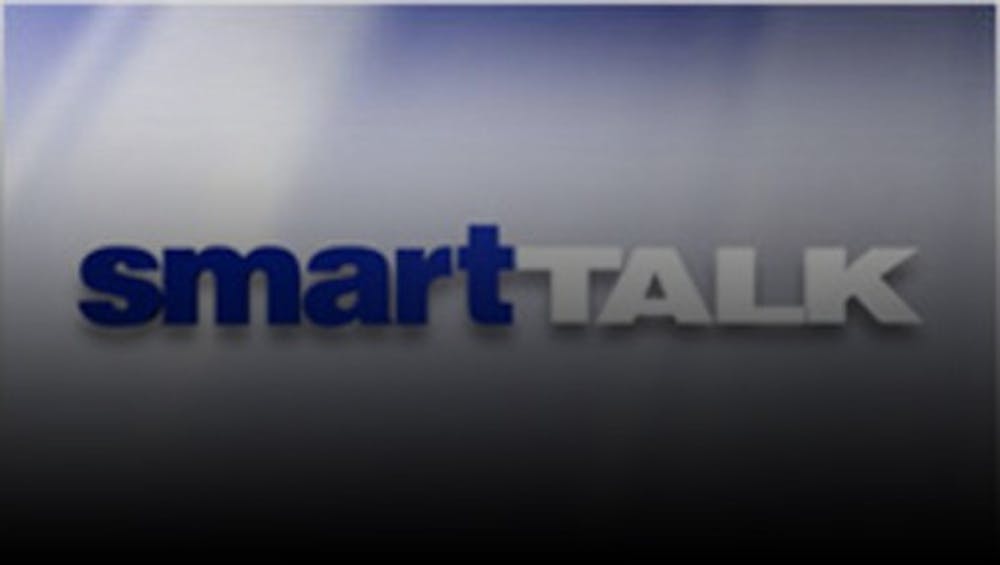Suffering through a year of unemployment, a man finally finds a job in Pennsylvania. Despite the commute taking 30 minutes to work and back, he looks forward to watching the local news on TV. And the show best suited for keeping up to date with Pennsylvania’s politics is none other than TV “Smart Talk.” However, Ken learns that WITF is celebrating its final season of TV “Smart Talk.” He additionally discovers that WITF is releasing a new radio program, “Smart Talk Friday.”
The announcement was made on Aug. 27, 2013. “Smart Talk Friday” is going to be covered by seasoned reporter, Matt Paul, who will be discussing civic issues on the new program by combining elements from radio “Smart Talk” and TV “Smart Talk.” Taking a look back at TV “Smart Talk” though, the show itself holds a rich volume of achievements, discussions and notable persons.
The TV “Smart Talk” program premiered in July 2000 with its first host Brad Christman, news director of Radio PA Networks. The show received dozens of awards from the Pennsylvania Associated Press Broadcasters Association (PAPBA), as well as four awards from the Pennsylvania Association of Broadcasters (PAB), and six Mid-Atlantic Emmy nominations.
TV “Smart Talk” was then hosted by Emmy-winner Nell McCormack Abom.
“It was a joy and I love my job. It was one of the best jobs I could ever have, and I’m sad to see it end. I tried to bring context to the issues that face us in Pennsylvania,” Abom said.
One way viewers can interact on TV “Smart Talk” is by using social media. Social media plays a big part with TV “Smart Talk.” It enables the show to take on a new perspective to an issue and addresses it thoroughly.
“Social media presents a wonderful opportunity to extend the reach of whatever programming you’re providing for the community,” Abom said. “I like the vibrancy with the immediacy with our viewers. People today want to speak to elected officials or news leaders who determine the course of these issues.”
Nell thinks the key, though, is to look at the essential truth and credibility with people interacting on social media. That is something each viewer, reader and listener needs to discern for themselves.
“Social media has radically changed the delivery of news. And it’s also a fascinating evolution for communication. It’s a challenge and incredible opportunity and the media hasn’t quite figured it out yet. A wider range of voices being heard and everyone can be a journalist now,” Abom said.
In the past three years, the viewer base rises while the Senate is in office for the month of February. On average 8,500 TV viewers watch “Smart Talk” on a given night. Consistently, the show holds a substantial number of viewers as the years go on.
Heather Woolridge, multimedia production manager at WITF, produces the TV “Smart Talk” series and describes how non-profit organizations differ from profit-making organizations.
“I think the main difference is to maintain a journalistic editorial line,” Woolridge said. “Everything we produce is not tied to outside funding. Our journalists are very objective and look at issues from an objective point of view, aside from being influenced from sponsors or other writers.”
The concept of news is changing, but WITF is true to maintaining the concept of its programs by providing educational and creative content for children and adults. The final episode of TV “Smart Talk” shows live on WITF at 8 p.m. on Oct. 17.
The new program, “Smart Talk Friday” begins Oct. 25, airing each Friday on 89.5 and 93.3 FM, from 9–10 a.m. and rebroadcast at 7 p.m.
For Additional Information:
http://video.witf.org/program/smart-talk/
http://www.witf.org/smart-talk/


The Slate welcomes thoughtful discussion on all of our stories, but please keep comments civil and on-topic. Read our full guidelines here.